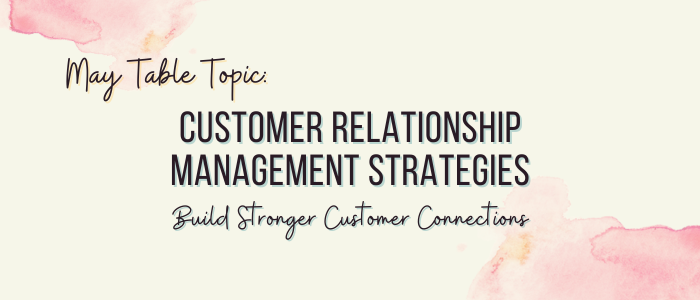“Customer Relationship Management Strategies: Build Stronger Customer Connections”
In today’s competitive business landscape, building strong relationships with customers is essential for long-term success. Customer Relationship Management (CRM) goes beyond simply selling products or services—it’s about cultivating meaningful connections and delivering exceptional experiences that keep customers coming back for more. In this article, we’ll explore effective strategies for building and maintaining strong customer relationships.
1. Understand Your Customers:
The foundation of successful CRM begins with a deep understanding of your customers. Take the time to research and analyze your target audience’s needs, preferences, and pain points. Use customer data and analytics to gain insights into their behaviors, purchase history, and communication preferences. By understanding your customers on a deeper level, you can tailor your products, services, and marketing efforts to meet their specific needs and expectations
2. Provide Personalized Experiences:
Customers crave personalized experiences that make them feel valued and understood. Use CRM software to track customer interactions and gather data that allows you to personalize your communications and offerings. Build customer relationships by addressing customers by name, recommending products or services based on their past purchases or preferences, and providing tailored content and promotions that resonate with their interests. By delivering personalized experiences, you can foster loyalty and build stronger relationships with your customers.
3. Communicate Effectively:
Communication is key to building strong customer relationships. Be proactive in reaching out to customers to gather feedback, address concerns, and provide support. Use multiple communication channels, such as email, social media, and live chat, to engage with customers and make it easy for them to reach you. Respond promptly to inquiries and complaints, and always strive to exceed customer expectations with your level of service and responsiveness.
4. Focus on Customer Service:
Exceptional customer service is the cornerstone of successful CRM. Train your team to prioritize customer satisfaction and empower them to go above and beyond to delight customers at every touchpoint. Resolve issues quickly and efficiently, and take the time to listen to customer feedback and make improvements based on their suggestions. By consistently delivering outstanding service, you can build trust and loyalty with your customers and differentiate yourself from competitors.
5. Build a Community:
Create opportunities for customers to connect with your brand and with each other by building a community around your products or services. Host events, webinars, or online forums where customers can share their experiences, ask questions, and interact with your team and other customers. Encourage user-generated content, such as reviews, testimonials, and social media posts, to showcase the value of your offerings and build social proof.
6. Reward Loyalty:
Recognize and reward loyal customers for their continued support and patronage. Implement a loyalty program that offers perks, discounts, or exclusive access to special events or promotions. Show appreciation for your customers’ loyalty with personalized thank-you notes, birthday or anniversary gifts, or surprise rewards. By demonstrating that you value their business, you can strengthen the bond with your most loyal customers and encourage repeat purchases and referrals.
7. Continuously Improve:
Finally, CRM is an ongoing process that requires continuous improvement and refinement. Regularly evaluate your CRM strategies and performance metrics to identify areas for improvement and optimization. Solicit feedback from customers through surveys or focus groups to gain insights into their evolving needs and expectations. Stay adaptable, and be willing to adjust your approach based on changing market dynamics and customer feedback.
Effective customer relationship management is essential for building strong, lasting connections with your customers. By implementing the tips above you can create meaningful relationships that drive customer satisfaction, loyalty, and advocacy for your brand.





